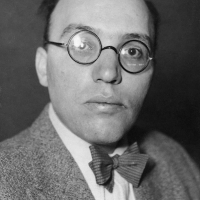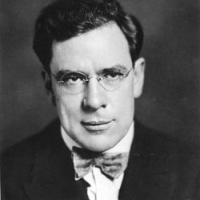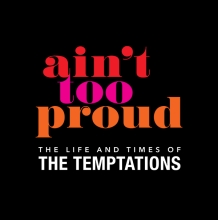Lost in the Stars

Share
Premiered on Broadway in 1949 and Weill’s last work for the stage before his untimely death the following year, LOST IN THE STARS is unique in its conception and in its power. Weill’s score combines (remarkably) blues, spirituals, Tin Pan Alley-style songs with operatic arias, choruses and chorales, the chorus assuming a central role in the setting and telling of the narrative.
Rev. Stephen Kumalo’s son Absalom wants to avoid a life spent in the gold mines and takes part in a robbery with his friends, in the course of which he kills his father’s white friend, Arthur Jarvis. Absalom, at trial, repents and decides to tell the truth, while his friends lie and are acquitted, while Absalom is sentenced to hang. These events shake Stephen’s faith to its core and he informs his congregation that he cannot continue as their minister; their faith is also shaken as a result. As Stephen waits alone for the clock to strike the hour of his son’s execution, Arthur’s father appears, recognising that they have both lost a son, and offers Stephen his friendship, which is accepted.
A deeply serious and important work with a score including “Trouble Man”, “The Little Gray House”, “Cry, the Beloved Country” and the title number, LOST IN THE STARS is written for a predominantly black cast.
Questions & Answers
Callboard
-
Did you see our latest news earlier in the week? Chitty flies again! We're thrilled to announce that rights to the full, 2-act version of Chitty Chitty Bang Bang are now available without restrictions for performances scheduled to take place before 31st December 2023. Applications for 2024 are currently restricted to those in venues of less than 500 seats. Apply today! www.mtishows.co.uk/chitty-chitty-bang-bang #chittychittybangbang #newrelease #trulyscrumptious
View on Instagram -
Xanadu is now available for licensing! You have to believe we are magic... Xanadu is a moving, electrifying tale of endless fun that will keep audiences in stitches, while the original, legendary chart-topping tunes lift them out of their seats. Find out more: www.mtishows.co.uk/xanadu #xanadu #newshow #amateurtheatre #licensing #olivianewtonjohn #strangemagic
View on Instagram -
Bravo to everyone at @_spotlight.theatre who went Into the Woods at Nottingham Arts Theatre earlier in the month. These photos look great! Photo credit: Martin Holtom. #intothewoods #nottingham #amateurtheatre #amdram
View on Instagram -
A huge congratulations to everyone at @green_room_productions on their hugely successful production of Sunshine on Leith. We really would have walked 500 miles to grab a ticket. #sunshineonleith #pottersbar #amateurtheatre #wyllyotts
View on Instagram -
As schools across the UK and Europe wind down for the Summer holidays we wanted to take this opportunity to celebrate the incredible teachers everywhere who make musical theatre happen year after year. To those teachers we say: you are an inspiration! We had close to 100 of these incredible teachers take part in this years Junior Theatre Festival, so lets enjoy the special teacher number from that days awards ceremony. #teachers #jtf22 #musicaltheatre #schoolshow #inspiration #education #broadwayjr
View on Instagram -
We love these production shots of Disneys The Little Mermaid JR from @pqanorthampton #merfolk #thelittlemermaidjr #performingarts #disney #broadwayjr
View on Instagram -
Bravo to @curtaincallshrewsbury on their production of Roald Dahls Matilda the Musical JR. Theyre currently having the best time working on the show, and these wonderful photos prove it! Enjoy your final performances. #matildajr #broadwayjr #shrewsbury #roalddahl #youththeatre #maggots
View on Instagram -
WHAT A PICTURE We'll definitely be sticking these in the family album A few snaps from @haslemereplayers dress rehearsal of KIPPS - The New Half a Sixpence Musical which runs at Haslemere Hall this week. Break a leg! #kipps #kippshalfasixpence #haslemere #haslemerehall #surreytheatre #surrey
View on Instagram -
Do you love musicals and want to work at MTI? We're searching for a new Licensing Assistant / Receptionist. The successful candidate will be required to work from our newly refurbished office in London at 12-14 Mortimer Street, W1T 3JJ. The core duties/responsibilities will include: Reception duties: * answering a busy telephone switchboard * greeting all visitors to the office Amateur Licensing support: * show availability requests * answering basic enquiries both via phone and in email * general administrative support as required Professional Licensing support: * general enquiries * generation of invoices as per instructions from the Professional Licensing team * vetting of foreign language translations The successful candidate will have a keen interest in musical theatre (on or off stage) and have excellent administrative skills. For full details visit: https://www.mtishows.co.uk/.../job-vacancy-licensing... #vacancy #licensing #receptionist #job #musicals #opportunity
View on Instagram -
JTF is making the news! @skynews @fyi_skykids came to Birmingham last month to share the power of jazz hands and spirit fingers with a wider audience. The JTF piece will air Saturday at 10:30 and 16:30 and then on Sunday at 10:30. We can't wait! Check out this sneak peak, which follows Timi from The British Theatre Academy. #jtf22 #news #jazzhands #broadwayjr
View on Instagram






